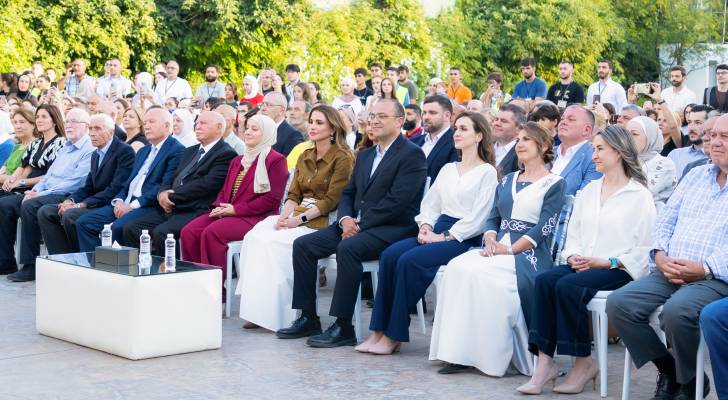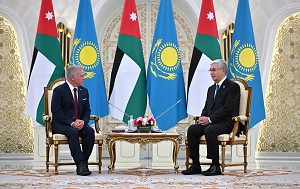Jordan seeks to expand trade with Syria, revive regional transit routes — minister
The Jordan Times
AMMAN — Around 200 and 250 Jordanian trucks cross daily into Syria carrying locally made products, along with additional transit shipments, reflecting growing trade activity between the two neighbours, Minister of Industry, Trade and Supply Yarub Qudah said on Monday.
Speaking at the Second Conference on Industry, Investment and the Reconstruction of Syria, Qudah said the increase in exports to Syria has also boosted activity at Aqaba Port, which has recorded a 30 per cent rise in container traffic, Al Mamlaka TV reported.
He noted that talks are underway to revive regional transit trade, including discussions between Syria and Turkey on reopening the Bab Al Hawa crossing, which would allow exports to reach European and international markets through transit routes.
Qudah urged the Jordanian private sector to seize economic opportunities in Syria, particularly in exports, pointing to joint government committees formed to strengthen cooperation in areas such as trade, transport, administration, water and agriculture.
Despite regional challenges, Jordan’s economy has posted positive indicators, with growth reaching 2.7 per cent in the first quarter of this year, compared with projections of 2.2 per cent, Qudah said. National exports rose by 9.2 per cent during the first five months of the year, supported by diversification into new markets, including Europe.
Foreign direct investment also grew by 14 per cent, underscoring Jordan’s attractiveness as an investment destination despite regional instability, he added.,
Highlighting the importance of the industrial sector, Qudah described it as a key driver of the national economy, reducing unemployment, generating jobs, supporting business activity and serving as the backbone of exports. He stressed that investment in industry enhances export capacity, reduces the trade deficit, and substitutes imports with locally made goods.
Calling Jordanian industry a “success story,” Qudah cited examples of Jordanian expertise and products reaching global markets. He noted that Jordanian-made air-conditioning systems are installed at four NASA facilities and at Los Angeles International Airport, while Jordanian pharmaceutical companies have acquired major global firms and continue to export technical expertise worldwide.
Qudah outlined several government support programmes aimed at strengthening competitiveness, including the Industrial Support Fund, which allocates JD30–35 million annually, and an export promotion programme with JD15–20 million in funding.
He also announced that natural gas will be supplied to three industrial zones by the end of this year, with plans to extend supply to other industrial cities to reduce costs and enhance competitiveness.
On trade policy, Qudah underlined that legislative and procedural reforms have been implemented to boost exports, supported by Jordan’s wide network of bilateral and multilateral free trade agreements, including the Greater Arab Free Trade Agreement and the Jordan–US Free Trade Agreement, which has significantly expanded Jordanian exports to the American market.




